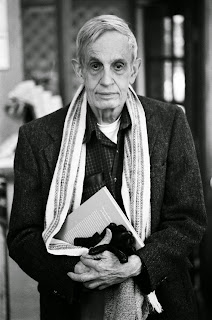When Economist build models of how the world works, they make simplifying assumptions. A character created for many of these models is Homo Economicus. These humans are completely rational and self-interested and so make it very easy to predict behaviour. Behavioural Economics studies the more psychological and emotional factors affecting economic decisions to try understand how we break away in reality. Often they do this by playing games to illustrate our biases. One of my favourite is the Ultimatum Game.
In this game there are two players. Call them Mmusi and Julius. Mmusi is given $100 and told that he must give some to Julius. If Julius accepts the amount, they both get to keep the money. If Julius rejects the amount, no one gets anything. They have to pay back the money. If Julius were Homo Economicus, he would accept even $1. Since $1 is more than nothing and he would have more.
In reality, very few people accept $1. Concepts of fairness and justice kick in. Emotions kick in. Julius is likely to get very angry with Mmusi even if there is 'rationally' absolutely nothing wrong with what he has done. Unlike many of the fascinating list of biases, this doesn't appear to be a mistake in our thinking. Mmusi, in making his decision, will know that it was luck that gave him the choice. He won't know whether the game is once off or will be repeated. Part of his decision making will have to be affected by stripping his identity from the game. How would he want the participants to behave if he didn't know which character he was?
John Nash sadly passed away recently in a car accident. He is the real person behind the movie 'A Beautiful Mind'. One of my favourite scenes is in a bar, when Nash realises that the strategy of Homo Economicus is wrong. Or at least incomplete. We do indeed do better when we do what is in our best interests, but what is in our best interests may be something that takes both those interest and those of the group into account. The Nash Equilibrium.
A broader point is that models are just that. Models. You can't capture reality in a model. Models are best thought of as questions. In fighting to put them together, they help structure thought but they will never capture all the fuzziness. The reason you always get incredibly smart people arguing with each other, is because no one has the answer, we are just searching for more beautiful questions. Just like you should get worried if a coach stops giving you grief, you should get worried if you agree with everything someone says.
John Nash sadly passed away recently in a car accident. He is the real person behind the movie 'A Beautiful Mind'. One of my favourite scenes is in a bar, when Nash realises that the strategy of Homo Economicus is wrong. Or at least incomplete. We do indeed do better when we do what is in our best interests, but what is in our best interests may be something that takes both those interest and those of the group into account. The Nash Equilibrium.
John Nash died 23 May 2015, aged 86
A broader point is that models are just that. Models. You can't capture reality in a model. Models are best thought of as questions. In fighting to put them together, they help structure thought but they will never capture all the fuzziness. The reason you always get incredibly smart people arguing with each other, is because no one has the answer, we are just searching for more beautiful questions. Just like you should get worried if a coach stops giving you grief, you should get worried if you agree with everything someone says.

No comments:
Post a Comment